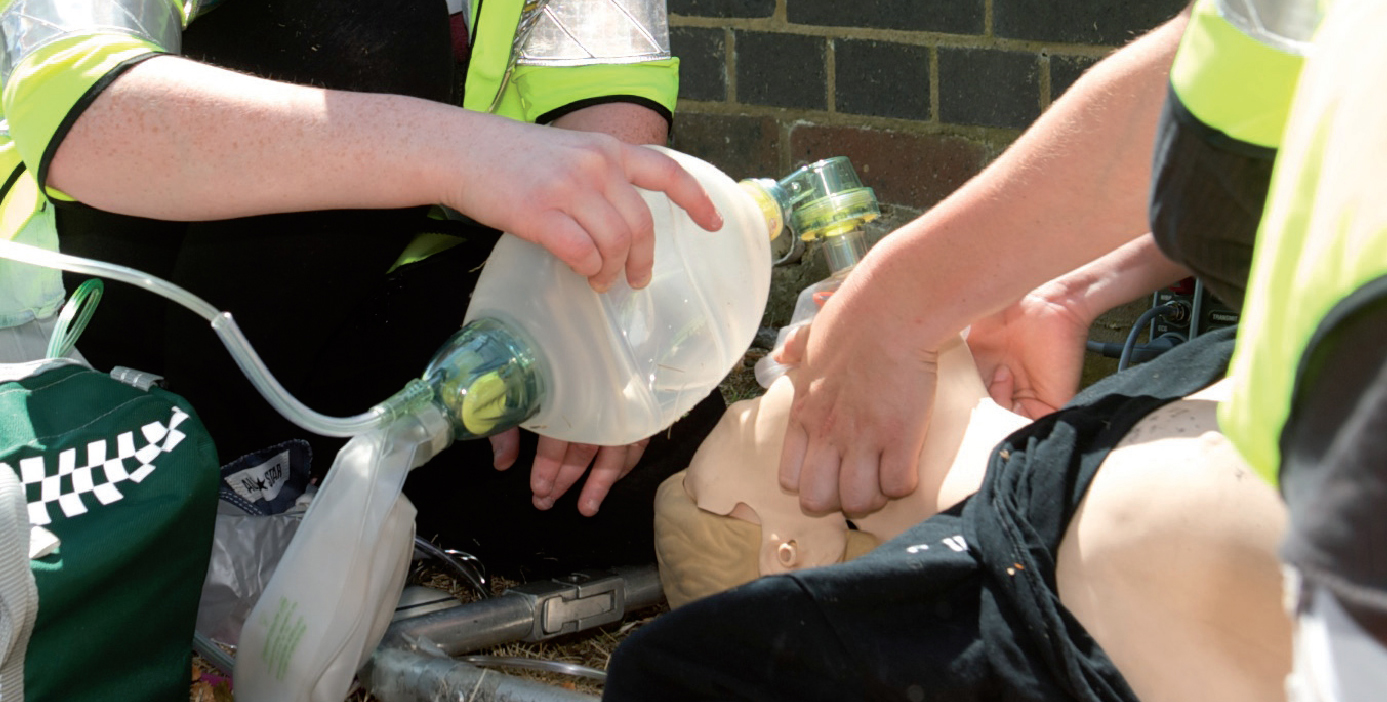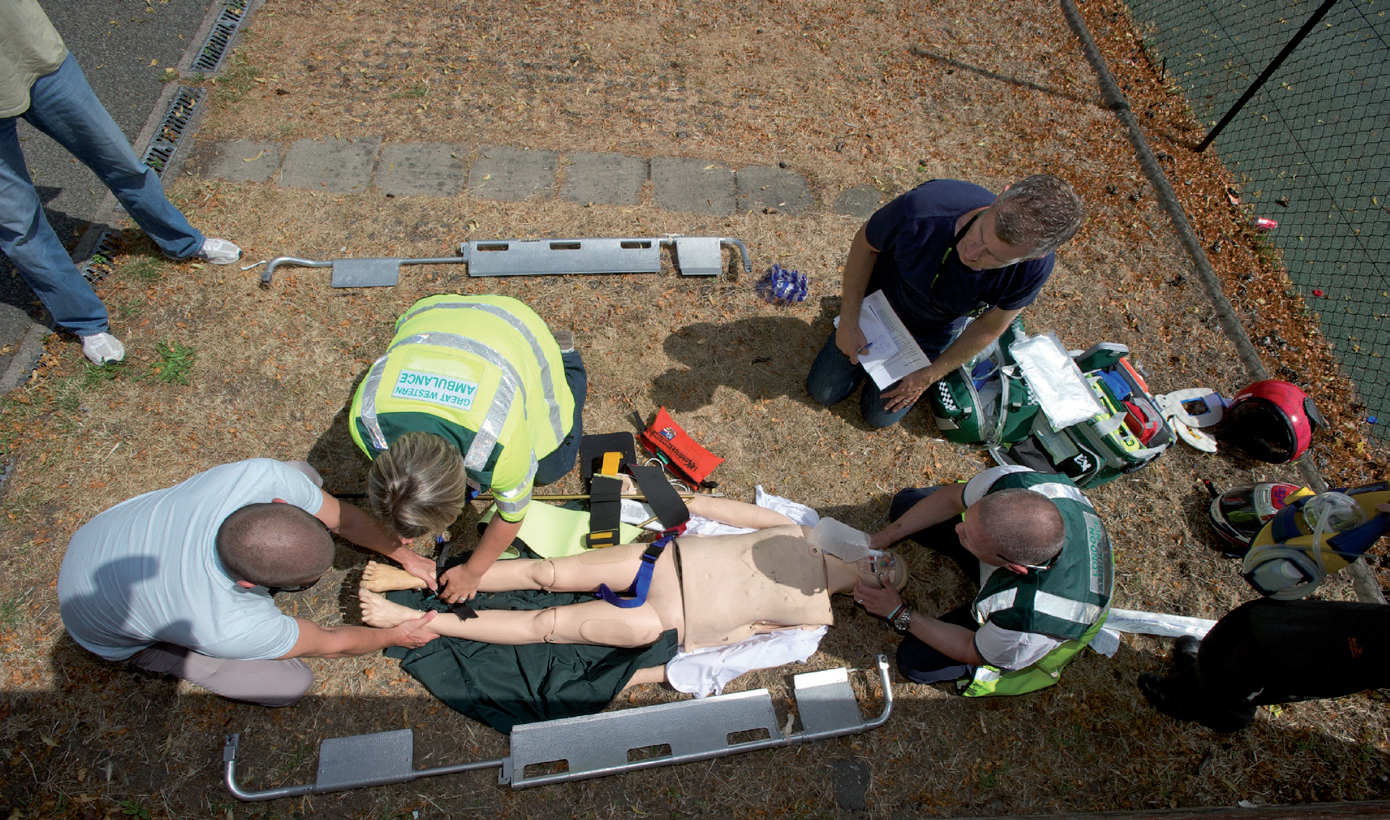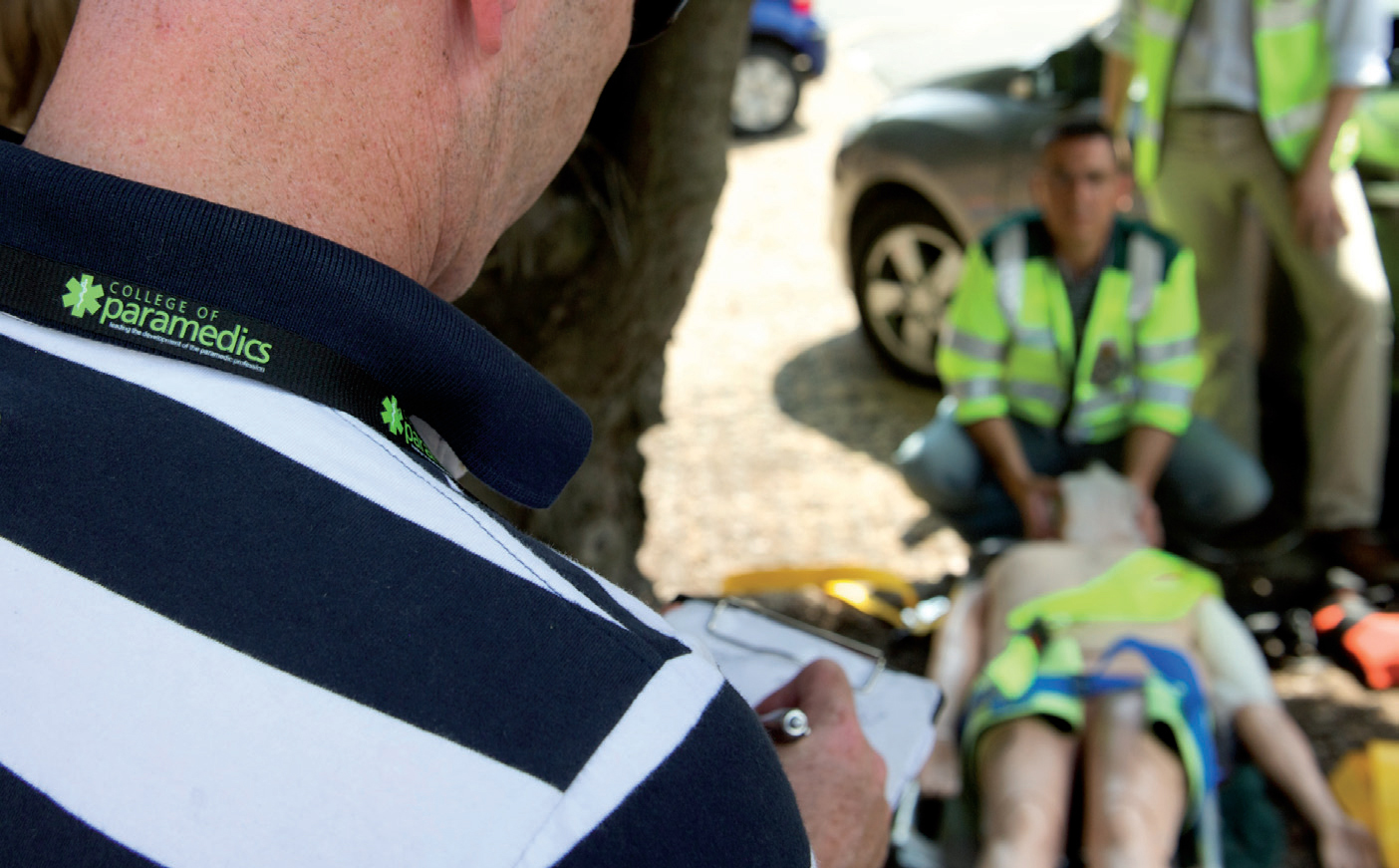On Saturday 27 July 2013 the London Regional Group—on behalf of the College of Paramedics and in association with the University of Greenwich—facilitated a one-day trauma programme for 30 candidates as part of their continuing masterclass series. The programme was taught by an experienced air ambulance faculty and was aimed at all College of Paramedics members wishing to improve their knowledge and skills in trauma care. This article provides an insider's view of the College of Paramedics Trauma Care Masterclass by outlining the background, programme, faculty, contents and future aims of the programme.
Background
Ambulance based paramedics across the UK do not regularly experience large numbers of seriously injured trauma patients. Delivering trauma care to patients with life-threatening injuries within this environment can involve some of the most challenging decisions in a clinician's career. Faced with emotive, dynamic and unpredictable environments, paramedics need to be given appropriate education and opportunity to successfully manage this patient group. Anecdotal evidence, noted through the Helicopter Crew Course conducted by London's Air Ambulance (Varela et al, 2012), proves low-fidelity trauma care education is an achievable and effective way of delivering advanced trauma care education within the doctor and paramedic group. Using this unique approach with the right coordination, imagination, ethos and an operationally experienced teaching faculty, patient outcomes are inevitably improved. This method can also provide an inexpensive and credible way of delivering trauma care education to all ambulance based paramedics.
The programme
The College of Paramedics Trauma Care Masterclass was a one-day programme run by experienced air ambulance flight paramedics.
All necessary trauma equipment was kindly supplied by the London Ambulance Service NHS Trust, and the day took place on the beautiful campus of the University of Greenwich. The programme was separated into two parts. The morning sessions focused on trauma care theory and included a mixture of interactive discussions and skill based learning; the afternoon focused on scenario-based learning with short discussion sessions thereafter. The programme was concluded with a question and answer session followed by a course evaluation. Throughout the day emphasis was placed on four common themes, these were: emotiveness of trauma; scene and crew resource management; Essential Airway Care (Figure 1); and structured approach to the trauma patient. Fundamental to the programme and faculty was the emphasis placed on getting the simple interventions done well, whilst using the most familiar and least complicated methods. This area is commonly misunderstood as ‘simple interventions’ are commonly thought to be easy to perform, and in real life on the road side this is often not the case.

Meet the faculty
The College of Paramedics Trauma Care Masterclass was successfully delivered by five experienced emeritus air ambulance flight paramedics (Nick Brown, Jean-Pierre Kotzé, Steve Jones, James Rouse and Claire Tinker), who together possess extensive up-to-date pre-hospital and trauma care knowledge. This knowledge and experience has been continually developed from within an air ambulance system which is tightly governed, and specialising solely in advanced trauma care. Additional roles held amongst the five faculty members include HCC facilitators, clinical team leader, clinical tutor, HART and MRU paramedic, and senior lecturer. Non-teaching faculty members included an excellent professional photographer who was fully involved with the scenario-based learning, and one very efficient programme facilitator. Future faculty members will be recruited from similar backgrounds.
Interactive discussion session
The morning was dedicated to an interactive discussion on trauma care. The framework of this session was designed to create an environment where everyone acknowledged this area of paramedic practice as being challenging and unfamiliar. This allowed candidates to speak freely and openly about trauma care and provided a platform for the faculty to address any uncertainties. The session started by exploring the psychological impact that serious trauma has on scene safety, scene management, patient care and clinical outcomes. Discussions were centred on the fact that serious trauma is a rare event with a high emotional component. There was also a focus on the effect of endogenous adrenaline on performance and the multitude of external factors that can hinder team performance and patient care. Faculty members provided strategies for paramedics to deal with these events in the absence of regular education, frequent exposure and expert governance. The faculty also provided a new way of looking at primary survey, airway management and underlying injury potential. Paramedics were encouraged to undertake a systematic 360° approach to scene management, which then allowed the paramedic to focus more on likely underlying pathology and immediate patient's needs. This same systematic approach also encouraged simultaneous activity to occur on scene, helping further to reduce on-scene times. Distinctions were made between blunt and penetrating trauma.
Scenario-based learning
After lunch the scenario-based learning began. There were four scenarios each with a different focus: head injury, chest injury, pelvic injury, and traumatic cardiac arrest (Lockey et al, 2013); included in some of the scenarios were mass casualties. Each scenario occurred outside in suitable locations, using fully clothed mannequins (clothes were cut off), full ambulance and trauma kit, and added props where required (cars, ambulance, crash helmets etc.). Each scenario was based on real life events, with each faculty member being fully versed in the patient's physiology and the patient's natural clinical progression if timely interventions did not occur (Figure 2). Other candidates played differing roles including police officers, relatives and bystanders.

This mixture of events allowed the candidates to get closer to reality and fall ‘into the zone’ when performing from within the scenario. The lead clinician on each team was required to place a clinical pre-alert and hospital handover to conclude the scenario. To help reinforce the candidates learning the groups engaged in a debrief where key areas were highlighted (Figure 3). This type of scenario-based learning was well received by candidates and observations were made of candidates putting into practice lessons from the morning's interactive discussion session. It is worth noting that the faculty felt a balance was struck within the scenarios between creating a stressful ‘real life’ environment whilst providing fairness in distinguishing between competency and scenario effect.

Future aims of the programme
The College of Paramedics Trauma Care Masterclass with its low-fidelity but high-intensity scenario-based learning was unique in its approach at this level. The faculty believe in this type of learning as it was the only way to successfully replicate the emotive, adrenaline charged high-stress environment which is common to most serious pre-hospital trauma scenes. The audience response to this type of learning was unknown and as a result the programme was delivered as an exploratory model. In conclusion and after analysing all the feedback, the College of Paramedics Trauma Care Masterclass was well received and unanimously deemed a success. The feedback provided by the candidates has since been implemented and the programme further developed and set to run again before the end of 2013. Future programmes and events will be run under the new title ‘Trauma Education for Pre-hospital Professionals’ (TEPP programme) and will be run under the College of Paramedics London Regional Group in association with the University of Greenwich.
So what did the candidates think?
‘Classroom teaching was extremely insightful and of high quality.’
‘Excellent relevance to practice, offered chance to practice using kit not often used.’
‘Multiple patient scenario gave me an opportunity to make a difficult decision.’
‘The variety of experience in the teaching team was fantastic along with their practical and clinical knowledge.’
‘A great day in an area I don't feel too confident in dealing with. Please keep running similar events—maybe outside of London!’
Reply from faculty to the candidates: ‘Thank you for your amazing involvement on the day, and please watch this space, because if the willingness is there we are open to running this programme in other parts of the UK’.
The faculty also sends a big thank you to professional photographer Brian Aldrich, for his enthusiasm and superb technique in capturing the day; programme facilitator Astrid Baez, for her time and endeavour in delivering the programme to time; Graham Harris (Director of Professional Standards for the College of Paramedics), for supporting the day; and Kevin Dark (Paramedic Tutor University Programme, London Ambulance Service NHS Trust), for supporting the day.
